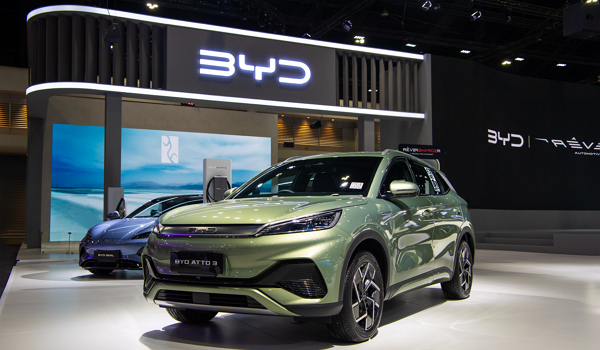
Seoul, South Korea – Chinese electric vehicle giant BYD is poised to make significant waves in South Korea's competitive automotive market. The company, which has rapidly ascended to become the world's largest electric vehicle manufacturer, is set to officially launch its passenger car brand in the country on [date].
Having already established a robust dealer network of 15 showrooms nationwide, BYD is aggressively pursuing its market entry. The company is targeting consumers with a range of models, including the compact SUV Atto 3, the mid-size sedan Seal, and the small hatchback Dolphin. The Atto 3, in particular, is expected to be a strong contender in the compact SUV segment, offering a competitive price point and a driving range of over 400 kilometers on a single charge.
BYD's arrival is expected to intensify competition not only in the import car market but also with domestic brands like Hyundai and Kia. The Atto 3 is anticipated to directly challenge models such as the EV3 and the Casper Electric, offering a more spacious interior and a compelling value proposition.
Tesla's Continued Success
Meanwhile, Tesla has continued to dominate the electric vehicle market in South Korea, securing the third spot in overall sales behind BMW and Mercedes-Benz. The company's success can be attributed to its advanced technology, strong brand image, and competitive pricing, facilitated by its manufacturing operations in China.
Growing Influence of Chinese Automakers
The increasing popularity of Chinese electric vehicles in South Korea is a reflection of broader global trends. According to the Korea Automobile Manufacturers Association (KAMA), Chinese passenger cars accounted for 56,459 units of total imports in the first 11 months of the year, surpassing the United States to become the second-largest source of imported vehicles.
Industry Experts Weigh In
"While there has been some skepticism towards Chinese brands in the past, BYD has proven its capabilities in the European market," said Lee Hang-gu, head of the Korea Automotive Technology Institute. "Their entry into South Korea is likely to pose a significant challenge to existing players."
What Lies Ahead
As the electric vehicle market continues to evolve, it is clear that Chinese automakers, led by BYD, are playing an increasingly important role. The coming years will be crucial in determining how South Korean consumers respond to these new entrants and how the domestic automotive industry adapts to this changing landscape.
[Copyright (c) Global Economic Times. All Rights Reserved.]






























